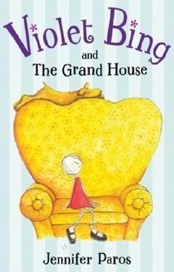The Desire to Be Done: Resisting and Creating
by Jennifer Paros
“Nature does not hurry, yet everything is accomplished.”
There is a quote, commonly attributed to Dorothy Parker (the essence of which may have originated with fiction writer, Frank Norris) that goes: I hate writing; I love having written. I am not fond of this sentiment. It disappoints. I just don’t like how it seems to perpetuate the idea that it’s easier to enjoy being done than doing. I want to enjoy the writing; I want to enjoy the drawing, the building, the cooking, the cleaning, the whatever. I want to enjoy the making of, the process of, the discovery, invention and innovation, the inspired movement. I don’t fault Dorothy’s (or Frank ’s) honesty, I’m just wary of settling into that frame of mind. It threatens to transform life into a to-do list with joy occurring only once check marks are achieved.
Although we often idealize being done, even attempting to hurry to get there, soon we’re just going to start another project – because, in truth, we want to be creating. It’s not the work we want over with; it’s the resistant thinking to doing the work. Worrying about outcomes, doubting and judging ourselves – these are forms of resistance that create the stress we want to end. We want to be done because of the relief we expect to feel once we are no longer holding resistant thoughts to what we are doing (by no longer doing it). But there are, I believe, other, better ways.
In his book, The War of Art, Steven Pressfield defines resistance as an internal, invisible dynamic keeping us from doing our creative work. Pressfield strives to help us recognize how resistance shape-shifts into fear, criticism, self-doubt, victimhood, self-medication, procrastination, and more. We learn how to spot it so we don’t fall for its propaganda and give up on our projects. The book is about being committed to getting on with whatever work calls us. Engagement is an active game requiring our awareness and deliberateness in order to nurture and sustain our work. Otherwise, our energy peters out and we end up pulling away from what we want, neither making it to the finish line nor ever enjoying the run.
Recently I noticed my morning schedule had gradually become distended. Though my routine was unchanged, my work starting time was at least twenty minutes later than what it had once been. It was now unclear to me how I’d ever been able to be ready so early. I considered how I might save time without altering what I was doing. With no action plan in mind, I set my intention to be done sooner - and the next day found myself with those twenty extra minutes back in hand, and easily on time.
“I have come to the frightening conclusion that I am the decisive element.”
I have since replicated these results days in a row and am curious as to how, exactly, this is working. What I’ve discovered is a subtle mental impulse in me to pull away from what I think I have to do even when it’s what I want to do. For example, when I get ready to exercise each morning (change into workout clothes etc), my mind sometimes draws back from the task. It’s subtle; I’m getting ready while simultaneously resisting getting ready - dividing my energy, incrementally delaying myself. Less perceptible than dawdling or goofing off, my focus splits just enough to stagger both my action and, in terms of when I’m creating, the flow of ideas. Awareness of this habit has given me the choice to realign with what I am doing and its natural movement forward.
When I want to get things done in the sense of over with, that’s resistance to the present moment. If I get ahead of myself, anticipating, worrying, guessing at the unformed future, I’m out in front the energy I need for creating. If I pull back, I am equally separated from that energy. That’s stress. As with the proverbial cart before the horse it’s easy to see how important it is to get ourselves properly lined up so we can go forward with greater ease and joy.
Done can be a natural outgrowth of dedication and focus; it will come. But love of the process is a daily, cultivated decision to go forward. And it is through this decision that we can recognize the resistance, understand how it can be made irrelevant, diminish its sway over us, and move in the direction of what calls us most.
Jennifer Paros is a writer, illustrator, and author of Violet Bing and the Grand House (Viking, 2007). She lives in Seattle. Please visit her website.

